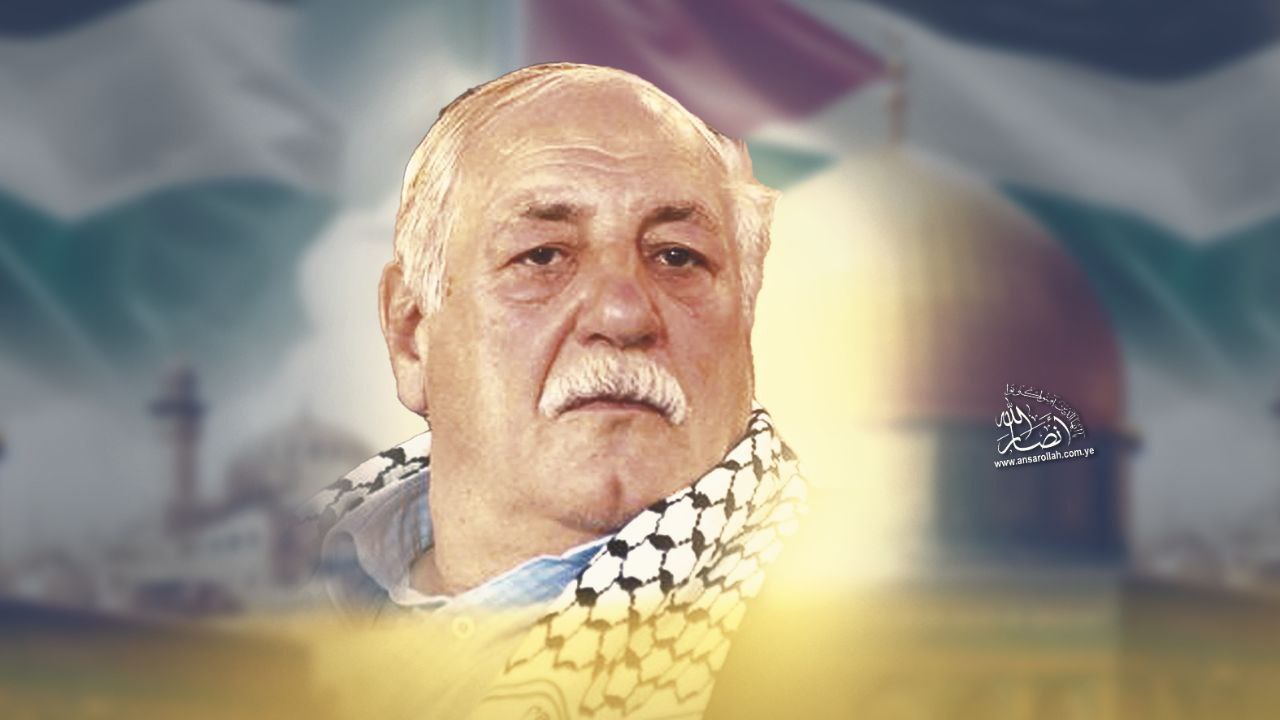Four years ago, Palestine bid farewell to an Arab figure who embodied loyalty and steadfastness — a name etched in sacrifice upon the Palestinian cause, honored by resistance fighters and respected by the righteous across the Arab and Islamic worlds, and beyond.
The late leader was an inspiring figure for generations. His entire life was marked by jihad, perseverance, steadfastness, faith, patience, determination, pride, and heroism. From the moment he joined the Popular Front for the Liberation of Palestine (PFLP), he rose to become one of its most prominent leaders and the first Secretary-General of the PFLP-General Command (PFLP-GC). He was constantly present at critical junctures and stages of the resistance and armed struggle.
Throughout the history of the PFLP-GC and under its founding president, hero Ahmed Jibril steadfastly adhered to armed struggle as the only straight path leading to the restoration of the land and homeland, and the establishment of a Palestinian state over all its territory within its known borders—from the river to the sea. He neither compromised nor engaged in peace negotiations or normalization.
The mere mention of Ahmed Jibril was enough to instill fear within Israel. He planned some of the most important and heroic operations, most notably the “Glider” operation in November 1987, which inspired the Mujahideen at the start of the Battle of the Al-Aqsa Flood on October 7, 2023. May God have mercy on him, he was also a brilliant architect of prisoner exchange deals with the Zionist entity, including one that led to the release of Sheikh Ahmed Yassin, founder of Hamas.
He remained committed to the resistance while in Jordan until the Hashemite Kingdom became too small for him and his comrades. Upon moving to Beirut, he was an unyielding fighter who continued his struggle until the Israeli invasion of Beirut in 1982, when Israel, with American support, forced the Arab states to expel Palestinian revolutionaries from Lebanon. In Syria, Ahmed Jibril continued on the path of victory for his people and nation until his final resting place.
Among his distinguished stances was being among the first Palestinian leaders and icons of resistance to condemn the Saudi-American aggression against our country and reject the so-called “Operation Decisive Storm” coalition. He deeply understood the damage inflicted on the Palestinian cause by Arab reactionaries and the extent to which Riyadh was manipulating the Arab political scene.
He was also a fervent admirer of Yemen’s position in support of the Palestinian cause and the massive popular movements that marked Yemen throughout the last decade. He often praised Sayyid Abdulmalik al-Houthi and his well-known stances supporting the Palestinian cause, its people, and its resistance.
As we write about this great figure, we recall with reverence and appreciation the history of the Popular Front for the Liberation of Palestine – General Command (PFLP-GC) and the unwavering struggles of its members, dating back to before the “Glider” incident that paved the way for the first Palestinian Intifada against the Zionist entity—the Intifada of the Stones in 1987—and up to their active participation in the 2021 Battle of the Sword of Jerusalem, which marked Jibril’s final act of struggle.
This battle demonstrated the resilience and strength of the Palestinian resistance, sounding the alarm to complacent Arabs, conspiring Americans, and the Zionist media in both the West and East. It heralded a renewed path of resistance, leaving no choice for those who walk it but martyrdom or victory.
In the Battle of the Al-Aqsa Flood, the Popular Front stood alongside other Palestinian resistance factions as an inseparable part of Gaza’s heroic and legendary epic—embodied by the courage and valor of its mujahidin heroes and the steadfastness and resilience of the popular base. They faced the most heinous crimes of the age: massacres, genocide, siege, and systematic starvation. They fled nowhere but deeper into Gaza, and departed this earth only to heaven. Palestine was and will remain the epitome of glory and sacrifice, and Ahmed Jibril will forever be one of its immortal symbols.
Written in Arabic by Abdullah Ali Sabry







